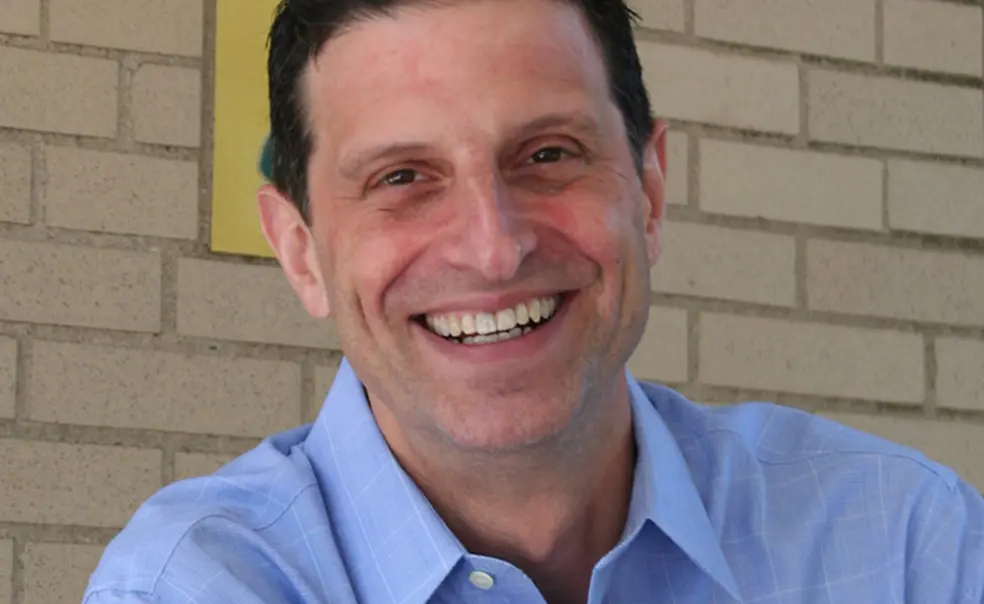Daniel Oscar ’88 Promotes Mentoring as a Driver of Educational Outcomes
Daniel Oscar ’88 believes in the power of mentoring. He first experienced its power right before his freshman year at Princeton when he participated in a camping trip with upperclass students as part of Outdoor Action (OA). He immediately was hooked and continued to focus on mentoring and leadership development activities throughout his Princeton years, from becoming a leader trainer for OA and a dormitory resident adviser to participating in Princeton’s peer counseling program.
As the president and CEO of the nonprofit Center for Supportive Schools (CSS) in Princeton, Oscar is now an outspoken champion of the profound value of students leading students.
“I think it’s almost a magical program in terms of the benefits,” Oscar says of his organization’s core program, Peer Group Connection, which trains school faculty to teach leadership skills to older students. The students meet with small groups of freshmen on a regular basis with the goal of positively influencing the younger students to help them become more engaged in learning and in the school community.
Oscar says the impact is compelling. Studies of the program have shown that graduation rates of the mentored students improved by 9 percent and results were particularly profound for male participants, whose dropout rates were cut in half. Participants also had improved grades and attendance rates, along with fewer disciplinary problems. In addition, these students deal better with stress and conflict and have increased confidence and optimism, according to the studies.
“Ninth graders are going to take advice and direction from older peers much more quickly from than from adults,” Oscar explains. “Perhaps where it’s most powerful is with the older students, gaining huge leadership experience that they can take with them to college and careers.”
Oscar came to CSS in 2009 after working in education for two decades, and four of the CSS board members are Princeton alumni — Stacey Herndon ’89, Matthew Weymar ’90, Ann Wozencraft ’86, and Debbie Yu ’86. Oscar’s early experiences in education also had a Princeton connection: After graduating and spending a year teaching in China, he met Wendy Kopp ’89 through the alumni network and helped her launch Teach for America, the national teacher corps of recent college graduates who teach in urban and rural public schools. He later founded The Learning Project in 1994, a nonprofit that launched and operated high-performing schools in underserved communities in New York and New Jersey. He served as a vice president for Edison Schools before becoming an independent consultant in 2008 and has been on the board of trustees of the Northeast Charter Schools Network since 2001.
Oscar characterizes his move to CSS as a change from the type of work he had been doing. “CSS was an opportunity to dive deeply into an area I knew to be critical to school success but hadn’t been able to before: social and emotional skills,” he explains. “Much of what I had been doing was focusing on achieving strong academic success, rigorous instruction, extended learning time, high standards, [but] this was much more focused on the human dynamic that’s at play in schools.”
Since joining CSS, Oscar says his greatest contribution has been to help the organization grow. In 2015, CSS was awarded an Investing in Innovation (i3) grant from the U.S. Department of Education, which led to a large matching grant from the Einhorn Family Charitable Trust. CSS is now five times the size it was in 2009 and has expanded, especially in New York City, where it is playing a critical role in Mayor Bill de Blasio’s Community Schools Initiative, operating in 11 community schools.
Why the focus on New York?
“New York City tends to model what later happens in other parts of the country, whether it’s community policing or the no-smoking policy in restaurants,” Oscar says. “What happens in New York, from a policy perspective, has the audience of the nation.”
From New York, Oscar hopes to start spreading the news: “We ourselves as an organization will only be able to touch a fraction of the schools in the U.S. through our programming, but we hope to help influence what happens in every school through the conversation we’re having.”












No responses yet